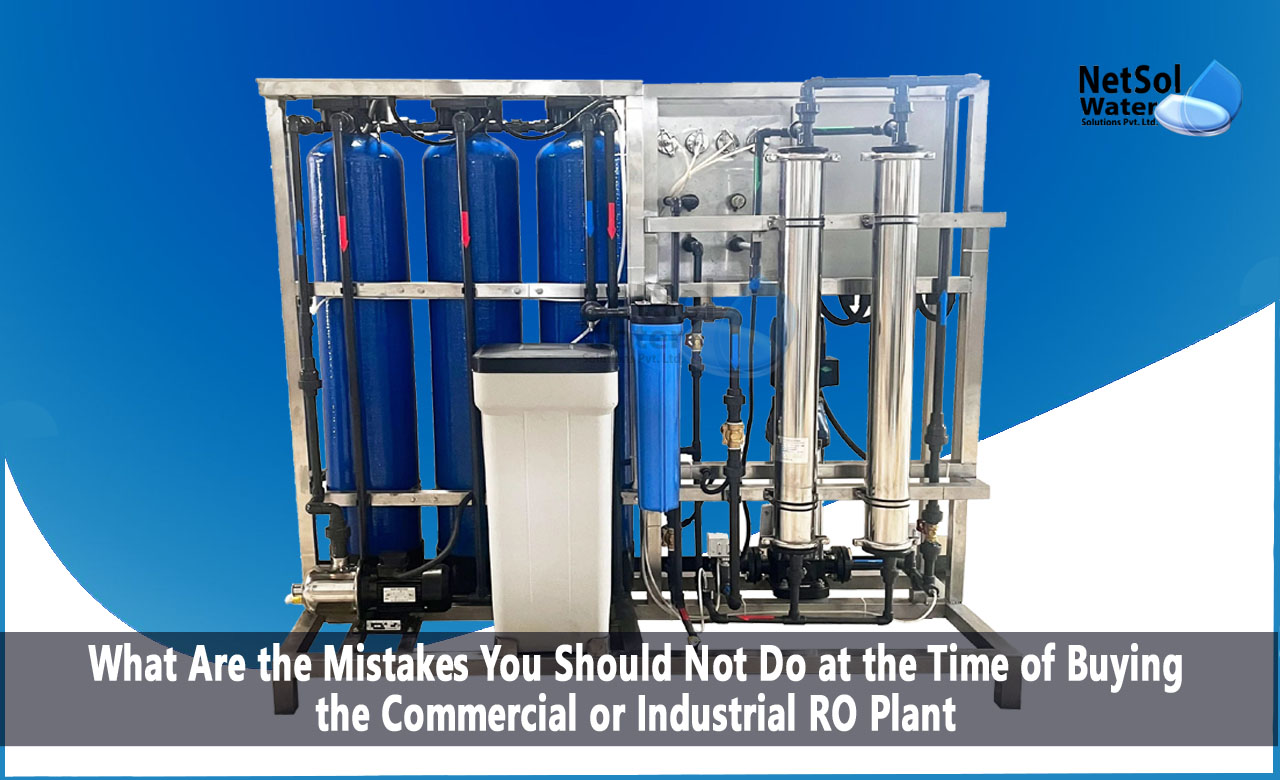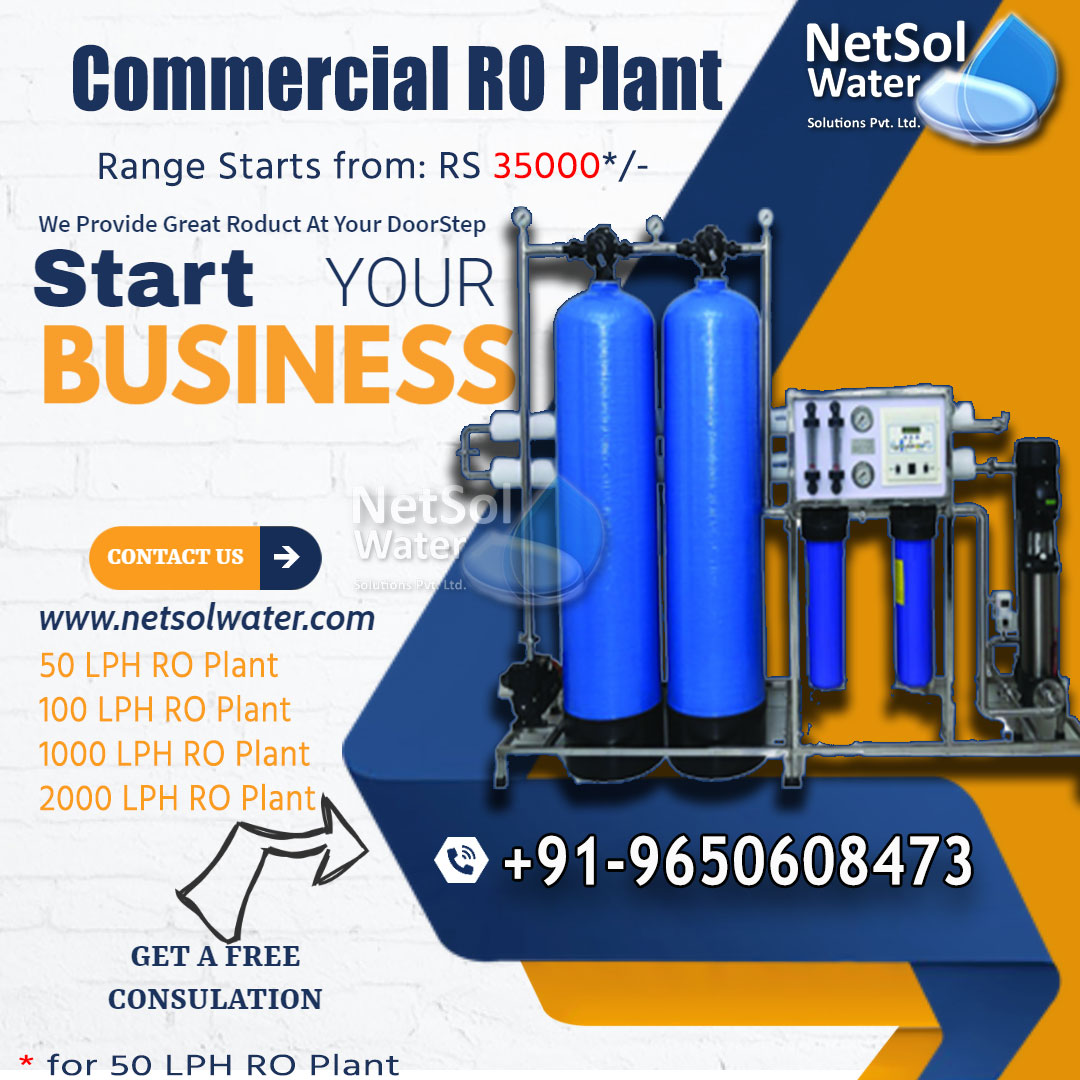Buying a Commercial or Industrial RO Plant: Mistakes to Avoid
Purchasing a commercial or industrial Reverse Osmosis (RO) plant is a significant investment for businesses and industries that require high-quality water treatment. RO systems are essential for various applications, including water purification, process water, and wastewater treatment. To ensure a successful procurement process and avoid costly mistakes, it's crucial to be well-informed and cautious. In this comprehensive guide, we will discuss the common mistakes to avoid when buying a commercial or industrial RO plant:
1. Neglecting Water Quality Analysis:
One of the most critical mistakes is failing to conduct a comprehensive water quality analysis. Understanding the source water's characteristics, including contaminants, hardness, pH, and TDS (Total Dissolved Solids), is essential for selecting the appropriate RO system and pre-treatment processes.
2. Not Defining Water Quality Requirements:
Without clear water quality objectives, it's challenging to select the right RO plant. Specify the desired water quality parameters, such as TDS levels and microbial purity, to ensure the system meets your needs.
3. Underestimating Capacity Needs:
Failing to accurately estimate your required water production capacity can result in an undersized RO system. It's essential to consider both current and future water demand to avoid production bottlenecks.
4. Overlooking Pre-Treatment Requirements:
RO systems require proper pre-treatment to protect the membranes and ensure efficient operation. Ignoring pre-treatment needs can lead to membrane fouling, scaling, and frequent maintenance.
5. Ignoring Environmental Regulations:
Different regions have varying regulations regarding water discharge and treatment. Ensure that your chosen RO system complies with local environmental laws and discharge standards to avoid regulatory issues.
6. Not Considering Energy Efficiency:
RO systems can be energy-intensive. Failing to consider energy-efficient technologies and design can result in high operational costs. Look for systems with energy recovery features to minimize energy consumption.
7. Choosing the Cheapest Option:
While cost is a factor, selecting the cheapest RO system without considering long-term maintenance and operational expenses can be a costly mistake. Invest in a system that offers the best long-term value.
8. Overlooking Maintenance and Service Agreements:
RO systems require regular maintenance and servicing to ensure optimal performance. Neglecting maintenance can lead to costly repairs and downtime. Carefully review service agreements to ensure they meet your needs.
9. Not Evaluating Vendor Reputation:
Choose a reputable vendor with a history of delivering reliable RO systems and excellent customer support. Vendor reputation and customer references are essential factors to consider.
10. Skipping Pilot Testing:
Conducting pilot tests on your water source can help assess the RO system's performance before making a full commitment. Skipping this step can lead to unexpected issues after installation.
11. Not Training Operators:
Proper operator training is crucial for the successful operation of an RO system. Neglecting training can result in errors, reduced system efficiency, and potential damage to membranes.
12. Rushing the Decision-Making Process:
Hasty decision-making can lead to regrettable choices. Take the time to research, consult with experts, and compare options to make an informed decision.
13. Ignoring System Redundancy:
Consider incorporating redundancy into your RO system design to ensure uninterrupted water supply, especially in critical applications. Redundancy can prevent costly downtime.
14. Not Considering Water Recovery:
Depending on your application, consider implementing a water recovery system to minimize wastewater discharge and reduce water consumption, contributing to cost savings and environmental sustainability.
Conclusion:
Purchasing a commercial or industrial RO plant requires careful planning, analysis, and consideration of various factors. Avoiding the mistakes outlined above can help businesses and industries make informed decisions, ensure regulatory compliance, and achieve efficient and cost-effective water treatment. Consulting with experts in water treatment and conducting thorough research is essential for a successful procurement process.




